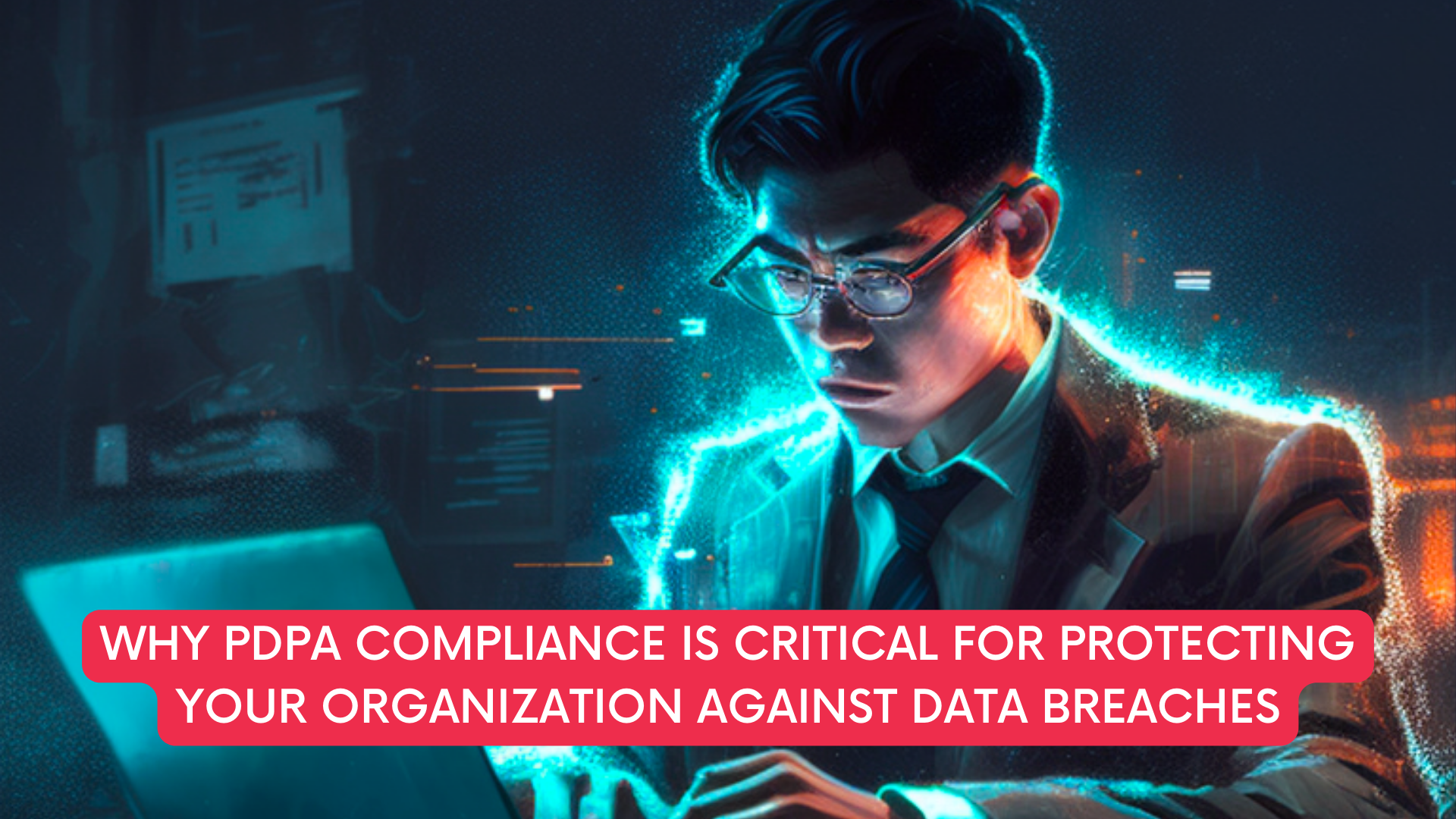KEEP IN TOUCH
Subscribe to our mailing list to get free tips on Data Protection and Cybersecurity updates weekly!







In today’s digital age, data breaches have become a common occurrence, and the consequences of a breach can be catastrophic for businesses. This is why Singapore’s PDPA was enacted to protect the personal data of individuals, organisations in Singapore against data breaches, and from an impending financial penalty that organizations may receive.
First and foremost, compliance with the PDPA can help to prevent data breaches from occurring in the first place. The PDPA requires organizations to implement appropriate security measures to protect personal data from unauthorized access, disclosure, and misuse. This includes implementing access controls, encryption, and other security measures to ensure that personal data is protected from cyber threats. By complying with the PDPA, organizations can reduce the risk of data breaches and ensure that personal data is being handled responsibly and securely.
In the event that a data breach does occur, compliance with the PDPA can help organizations to respond quickly and effectively. The PDPA requires organizations to have a data breach response plan in place, which outlines the steps that should be taken in the event of a breach.
This includes containing the breach, evaluating the extent of the breach, notifying affected parties, investigating the cause of the breach, and implementing measures to prevent future breaches. By having a plan in place, organizations can respond to a breach quickly and minimize the damage that it causes.

Customers are becoming increasingly aware of data privacy concerns and are more likely to do business with organizations that take data protection seriously. By complying with the PDPA, organizations can demonstrate to customers that they are committed to protecting their personal data and can build trust and confidence in their brand.
Organisations should be reminded that such compliance should not be taken lightly. Non-compliance with the PDPA can result in severe penalties, including fines and legal action. Such a penalty could range up to S$1,000,000 and this is regardless if your organisation is big or small. It should also be noted that such compliance should be proactive, as a small mishap could result in a big problem for the organisation.

Your appointed DPO can work with you on ensuring that there will be policies in place to prevent unwanted data breach, especially if your organisation also handles personal data or even other sensitive data that your organisation would not want to leak. A DPO is a must to ensure that this will not happen and bad actors will remain at bay.
A Data Protection Officer (DPO) oversees data protection responsibilities and ensures that organizations comply with the Personal Data Protection Act (PDPA). Furthermore, every Organization’s DPO should be able to curb any instances of PDPA non-compliance and data breaches as it is the officer responsible for maintaining the positive posture of an organization’s cybersecurity.
DPOs complement organizations’ efforts to ensure that the organisation’s methods of collecting personal data comply with the PDPA. It also ensures that policies are set in place to make sure that there will be no instances of data breaches in the future.
Don’t wait any longer to ensure your organisation is PDPA compliant. Take our free 3-minute PDPA Compliance Self-audit checklist now, the same “secret weapon” used by our clients to keep them on track. Upon completion, we will send you the results so you can take the necessary action to protect your customers’ data. Complete the free assessment checklist today and take the first step towards protecting your customers’ personal data.